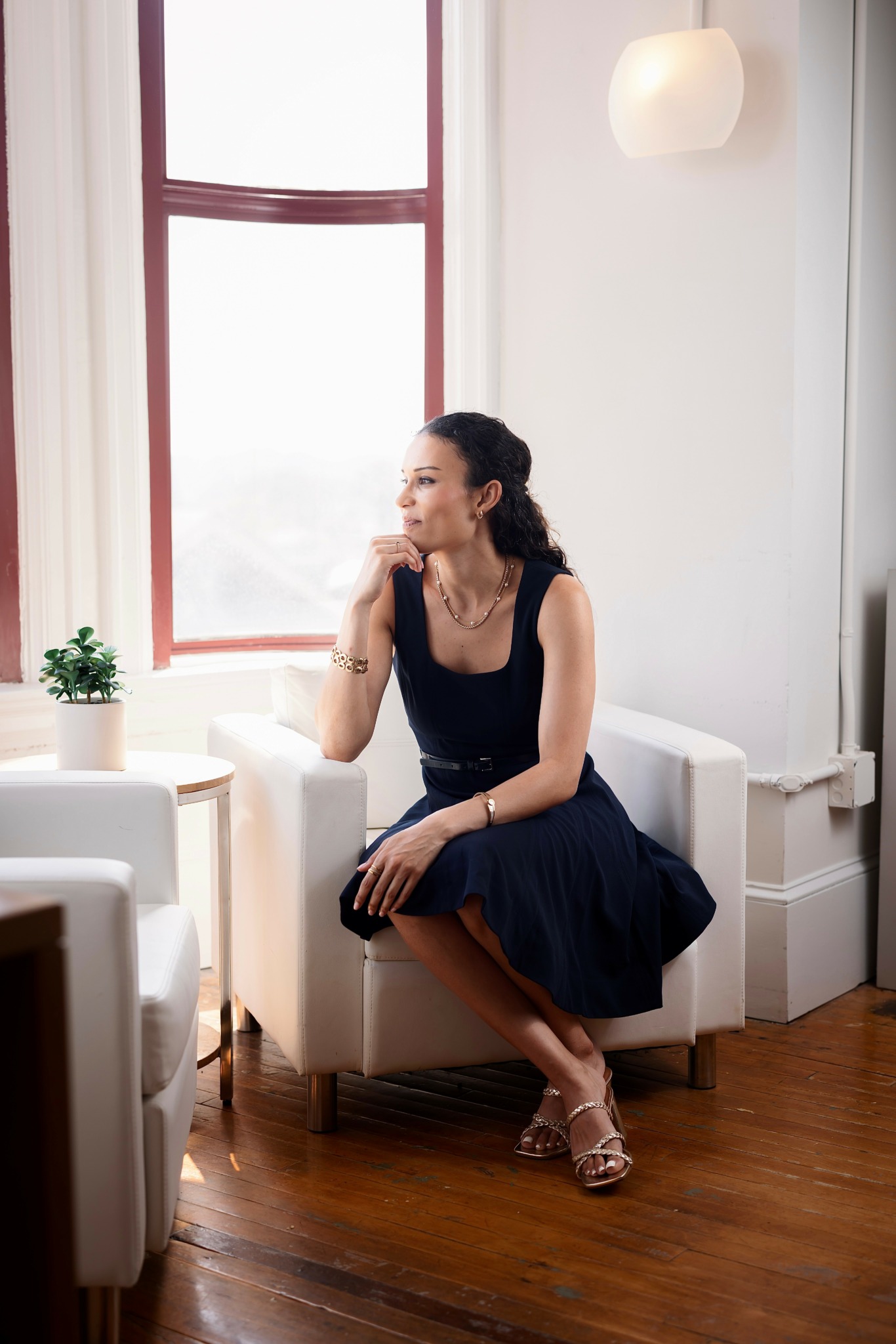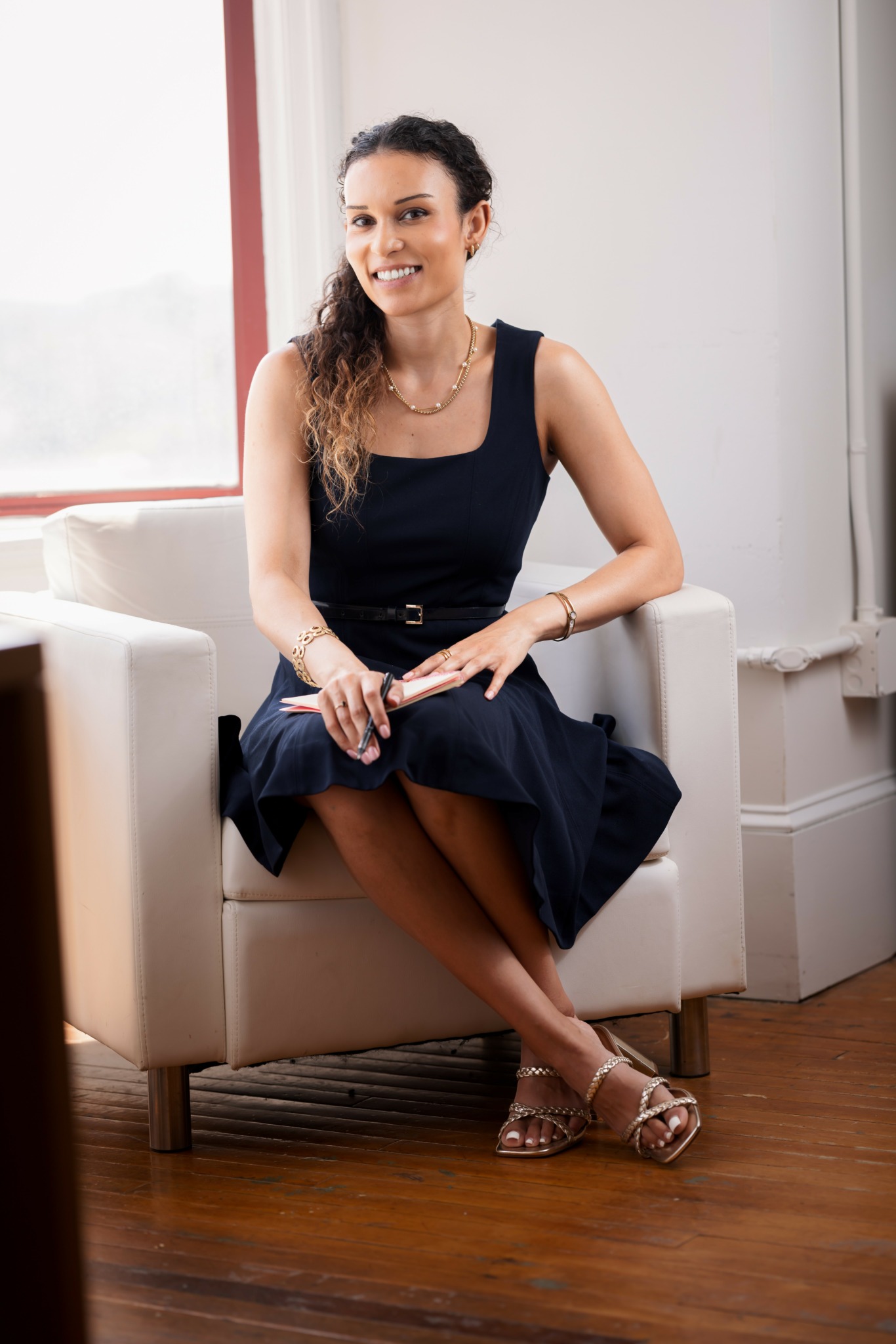We recently connected with Sabra Meretab and have shared our conversation below.
Sabra, thanks for joining us, excited to have you contributing your stories and insights. Can you talk to us about a project that’s meant a lot to you?
I’m still in the thick of the most meaningful project of my life so far: writing a memoir about my burnout.
I started writing it at a time when I was in my best place professionally, but my worst place personally. I was working at a fast-growing tech company in Silicon Valley, with a team of people that I admired and a product that I strongly believed in. Ironically, it was because I cared so much about both – the people that I worked with, and the products that we were building together – that I burned out so hard.
At first, I attributed my exhaustion to the nature of the business. Our company was growing fast, which was thrilling. But it was also growing faster than we could grow our workforce to support it. We were building complex software, and it required all hands on deck to move quickly when the system sometimes broke. But, when I finally gave myself space to reflect, I realized the job responsibility wasn’t the root of my burnout. The root cause was how I went about doing the work.
The reason I was so exhausted was because I was choosing to constantly over-extended myself. That pressure to stretch myself thin had less to do with the needs of the business, and more to do with my own imposter syndrome. I was in awe of the people I worked with, and I wanted to keep proving myself. Over time, that even morphed into “hero syndrome,” which is talked about less often than imposter syndrome. Even after you’ve proven yourself in a realm and are appreciated and rewarded, you still over-work yourself out of the fear that you’ll inevitably disappoint everyone. You fear breaking the facade.
To process all of the self-doubt that I had spent too long overlooking, I began journaling late at night. And slowly, the shape of a story began to emerge. It started as a therapeutic outlet, but soon, I sensed writing was a creative calling. I fell in love with the craft, and I wanted to keep writing more. The more I wrote, the more I was able to deconstruct my burnout and build deeper trust in myself.
Eventually, I no longer doubted myself at work. I was making healthier decisions to balance my professional and personal life. But, as I unraveled the self-doubt in my tech job, I also started to notice that my self-doubt had migrated somewhere else. Now it was whispering in my ear about writing: Sure, you can write in your journal. But, you can’t be a “real” author.
That’s when I realized I needed to write and publish a book, precisely because it scares me. I had let self-doubt take the wheel at work for too long, and now it was creeping into my creative pursuit. I had removed fear from my professional life, and I couldn’t let it dictate my art.
That, more than anything, is why this memoir matters to me. It’s a story that serves as a lasting reminder to myself about how important it is to take initiative, even in spite of your deepest self-doubts.

Sabra, before we move on to more of these sorts of questions, can you take some time to bring our readers up to speed on you and what you do?
I spent most of my career working in Fintech, building and scaling financial infrastructure and payments products. Most recently, I served as Chief of Staff and Technical Advisor to the Head of Payments Engineering at Stripe, where I helped lead some of the company’s largest architectural transformations and set strategy across a one-thousand person organization. I took pride in being the person who could always take on complex, high-stakes projects and “keep calm” in a crisis. But, I was also hiding the cost.
I found myself burning out under the weight of all the invisible pressure I put on myself to never disappoint fellow teammates and leaders. I would push myself to the brink, before letting the ball drop. Eventually, the effects were too acute to ignore. I was battling crippling headaches and insomnia on a daily basis, but I also sensed that I was the problem.
I started journaling as a means to heal myself. I merely wanted to make sense of the burnout I was feeling, but it readily morphed into something more.
Today, I’m working on packaging that journal into my first book—a memoir. It traces my journey as a “publicly” high-achieving, “privately” self-doubting, woman balancing her career ambitions against her creative longings. It’s a blend of cultural critique and self-inquiry, told with humor and a deep curiosity about what makes a life truly meaningful. It’s also a story of how burnout isn’t always about the job. Sometimes, it’s about the infrastructure of our own self-doubt. And if we want to succeed– be it in corporate or creative pursuits – we have to proactively rewrite that code engrained within ourselves.

We often hear about learning lessons – but just as important is unlearning lessons. Have you ever had to unlearn a lesson?
One of the biggest lessons I’ve had to unlearn is the belief that vulnerability is dangerous.
For most of my life, I thought I had to be unflappable to be taken seriously as a leader. I thought I always had to be “on top of things,” and never shake people’s faith in me by revealing my exhaustion or my self-doubt. But, that mindset had a lot of hidden side effects. It made it hard for me to say no to taking on new tasks and hard to admit when I was at capacity. I was overly focused on appearing capable and composed, and fearful of disappointing everyone else.
I think that’s a trap that a lot of high-performing people fall into early in their careers. We think that the best way to be excellent is by constantly taking on more. But, that’s actually a “junior” mistake. You can hold yourself to high standards and be ruthless in how you prioritize your time and energy. In fact, that’s often the path to sustainable excellence: focusing on fewer things, but doing them really, really well, is what makes for thriving people and successful companies.
Once I stopped pretending I could do it all, I actually started hitting more home runs. Saying things like “I’m at capacity” or declaring “this is lower priority, so I’m going to push it out” – made me have more impact in my company. Sharing what I was feeling also built a culture of transparency with my teammates, and trust is the foundation of every high-performing team I’ve ever seen.
Today, vulnerability is at the heart of everything I do. Vulnerability not only made me a happier human, but also a more mature and strong leader. That’s the irony. It’s at the center of my work-in-progress book and my blog posts. And, when I choose to return to the corporate world, it will remain at the center there too. You can be calm, strategic and high-performing, while also lightening your load by simply telling the truth about what you feel and what you need.
I was lucky to be part of a company that deeply valued that in its people and leaders. It’s important that we all contribute to creating those cultures. Sharing what we’re feeling is uncomfortable, but in the long-term, it’s the only sustainable strategy for happy people and teams.

What do you find most rewarding about being a creative?
The most rewarding aspect of being an artist is that it changes how you move through the world.
No one hands you the title. You either decide to claim it—or you don’t. But once you do, something shifts. You start paying closer attention. You become a little more porous to the insights hidden in everyday moments and a little more attuned to the beauty that is easy to overlook.
For me, as a writer, it’s made me more present in my own life. I reflect longer on conversations with friends and family. I study the people and places around me more closely. I find myself appreciating everything more, because I know there might be a story tucked inside even the smallest moment.
That’s the strange magic of creativity—it turns everyday life into source material. And when you finally do shape something out of those moments, it deepens the memory.
So for me, the greatest reward of being a creative has nothing to do with the actual creative output. The greatest reward is deeply ingrained in the work, which forces you to slow down and sharpen how you see the world. The best part of being an “artist” is choosing to live with more curiosity, which is really just giving yourself permission to study, and often laugh at, all of life’s bizarreness and beauty.
Contact Info:
- Website: https://www.sabrameretab.com
- Linkedin: https://www.linkedin.com/in/smeretab
- Other: Blog: https://snackablegrowth.substack.com




